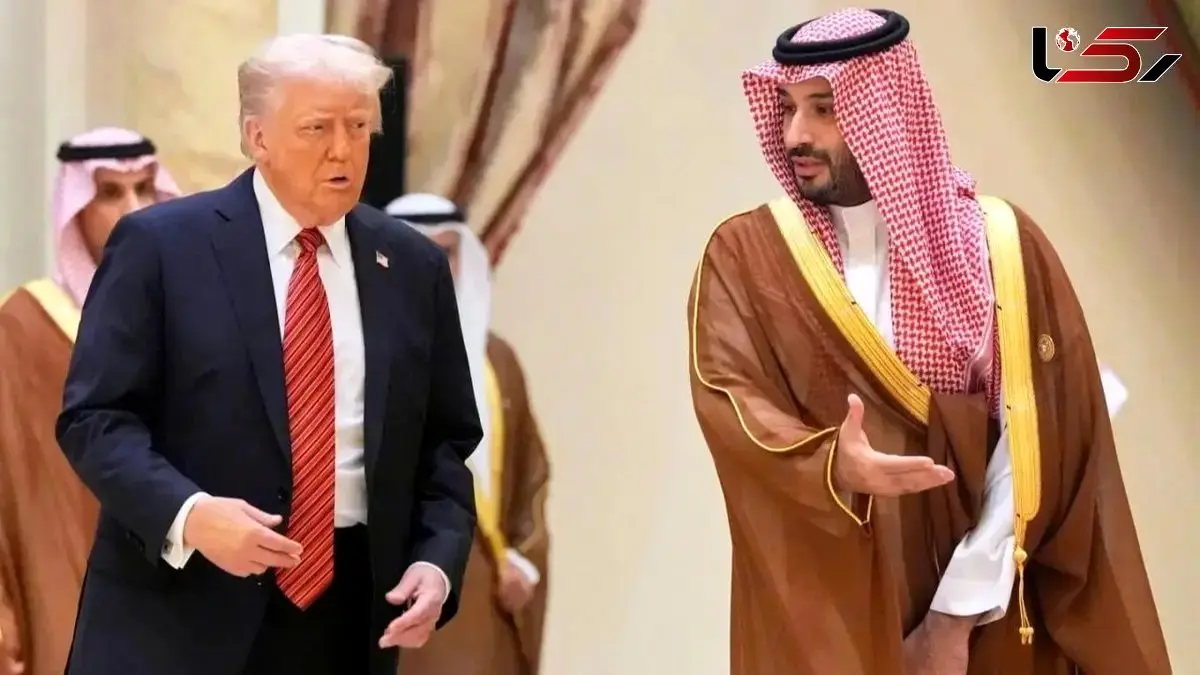Saudi Crown Prince Returns to Global Stage; First U.S. Visit After Period of Isolation
Rokna Political Desk: The Saudi Crown Prince has returned to the global stage following a period of isolation and has met with Donald Trump in the United States, a development that has sparked widespread reactions, particularly regarding the potential sale of F-35 fighter jets to Saudi Arabia.

An American media outlet described Mohammed bin Salman’s meeting with Donald Trump as an effort by the Saudi crown prince to re-establish himself on the international stage—an action perceived by some as reformist and forward-looking, and by others as reminiscent of a dictatorial figure.
According to Rokna, NBC News reported on Tuesday that the 40-year-old bin Salman became a globally reviled figure following the 2018 murder of Jamal Khashoggi, a journalist critical of the Saudi regime. That year, Trump defended the Saudi government, even after the CIA concluded that the killing had been carried out on the direct orders of the crown prince.
In 2022, then-U.S. President Joe Biden visited Saudi Arabia and warmly engaged with bin Salman. The symbolic handshake between Biden and the crown prince caused widespread controversy, as many world leaders had shunned the Saudi heir. In 2019, bin Salman acknowledged full responsibility for Khashoggi’s murder occurring under his tenure but denied issuing a direct order.
Tuesday’s visit marks the first of the Trump administration’s second term and is widely regarded as a sign of the crown prince’s renewed acceptance on the diplomatic stage.
Michael Wahid Hanna, U.S. Program Director at the International Crisis Group, told NBC News: “Bin Salman is now a different figure. Questions about governance and domestic repression remain, but this is a distinct and symbolic moment. He is at the center of what the current U.S. administration wants to achieve in the region.”
According to the report, Trump and bin Salman are expected to sign economic and defense agreements.
A White House official told NBC that even before the crown prince’s arrival in the United States, Trump had announced in a ceremony in the White House that he was prepared to approve the sale of F-35 stealth fighter jets to Saudi Arabia—a controversial move that could alter the balance of power in the Middle East, where Israel has been the sole recipient of this advanced technology.
Analysts, however, note that this announcement does not imply the immediate delivery of F-35s to Saudi Arabia. Andrew Lebar, a Carnegie Endowment researcher, noted that a similar deal with the UAE failed due to U.S. concerns about Israel’s military advantage and the potential transfer of technology to China.
The potential normalization of relations between Saudi Arabia and Israel will also be a key aspect of the discussions. Trump hopes that Riyadh will join the Abraham Accords, a compromise agreement for normalizing relations between Israel and Arab countries, facilitated by the U.S. in 2020.
Experts, however, are skeptical about a rapid realization. Fawaz Gerges, professor of international relations at the London School of Economics, said: “The risk for bin Salman is very high, because Saudi Arabia has emphasized that such an action is impossible without Israel’s commitment to the establishment of a Palestinian state.”
Even if the crown prince delays a formal announcement regarding relations with Israel, he has gained a special position with Trump due to his role in facilitating the ceasefire between Israel and Hamas. Several agreements are expected to be announced during his visit, including multi-billion-dollar Saudi investments in U.S. artificial intelligence infrastructure, cooperation in civilian nuclear energy, and implementation of the previously pledged $600 billion Saudi investment.
Critics, however, have repeatedly warned about the intertwining of Trump’s personal interests with diplomacy. His properties have hosted UFC events with Saudi support, and the New York Times reported on a major real estate contract under review between the Trump Organization and Saudi Arabia.
Human rights groups have also called for pressure on Riyadh due to its poor human rights record. A report by Human Rights Watch in August 2025 noted an “unprecedented increase” in executions, with 241 people executed by August 5 in Saudi Arabia.
At the same time, some restrictions on women have been relaxed, and bin Salman has sought to open Saudi society to Western entertainment, from UFC boxing events to comedy festivals. Nevertheless, the presence of comedians such as Louis C.K. and Bill Burr in Riyadh has drawn sharp criticism.
Michael Wahid Hanna concluded: “These political reforms do not create a genuine space for politics, but they have fundamentally changed Saudi society and transformed the role of religious institutions. Significant social changes have occurred, partly because he operates without serious constraints.”
Independent U.S. progressive Senator Bernie Sanders also commented on bin Salman’s visit, stating: “Trump is welcoming Mohammed bin Salman, the Saudi crown prince, to the White House. This is a dictatorship that murdered an American journalist for criticizing the Saudi royal family. Unfortunately, we have a president who prefers the Saudi model—a despotic government run by a trillionaire family—over democracy.”
Send Comments